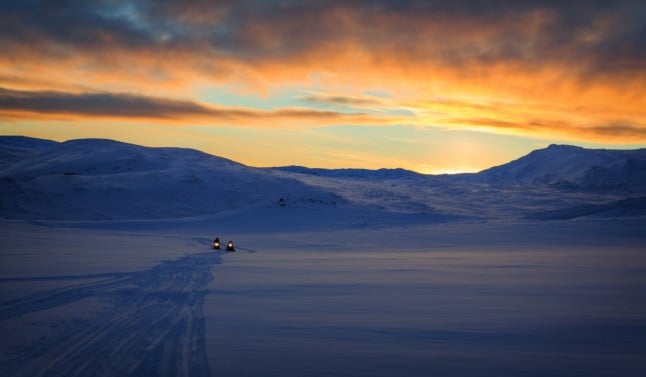Iraq's deputy prime minister responsible for energy affairs, Hussein al-Shahristani, also said Baghdad was considering offering foreign oil firms more lucrative contracts, as he admitted a recent auction of exploration blocks had not been as successful as officials had hoped.
Total "was requested to withdraw from this field, and it has been given a certain period to end this case by selling its share to another company or by
ending the contract with Kurdistan," Shahristani told AFP.
He did not specify the time by which Total, which said on July 31 that it signed an oil exploration deal with Kurdistan, needed to make a decision.
Kurdish authorities have signed dozens of deals with foreign energy firms on a production-sharing basis, contracts regarded as illegal by Baghdad which
insists all such deals must go through the federal oil ministry and prefers per-barrel service fees.
The agreement between Total and Kurdistan came with relations between the autonomous region and Baghdad at a low ebb over multiple festering disputes, including over oil contracts and territorial claims.
Within a period of weeks, US oil firm Chevron and Russia's Gazprom have also inked deals with Kurdistan, after American giant ExxonMobil signed an
agreement with the region last year.
"Total announced that it signed contracts in Kurdistan and, because of that, the ministry of oil told them that they had breached Iraqi law,"
Shahristani said. "If it ends its contract with Kurdistan, it can proceed with the Halfaya field."
Total is a minority member of a consortium led by China's CNPC and also including Malaysia's Petronas to extract oil from the Halfaya field in Maysan
province, in a contract awarded in a December 2009 auction.
The field, which has known reserves of 4.1 billion barrels of oil, officially began pumping last month. It is expected to produce 535,000 barrels
of oil per day within five years.
CNPC has the biggest stake in the consortium at 37.5 percent, followed by Petronas and Total at 18.75 percent each, with Iraq's state-owned South Oil
Company holding a 25-percent stake.
The latest deals between Chevron, Total and Gazprom and the Kurdish region came after Baghdad held a public auction in late May for a dozen energy
exploration blocks, but only four contracts were awarded, with analysts attributing the failure to the tough terms on offer.
In a nod to that criticism, Shahristani said Iraq was considering modifying the terms.
We are studying a new model of contract for other oil fields because the first oil fields (that were auctioned) were discovered and well-known," he
told reporters.
"There is a study in the ministry of oil to improve the model of contract to make it more attractive for oil companies.
"The fourth bid round was not successful, as we hoped, and the reason was because the contracts … were very tough and did not give a possibility for
the company to accept the high risk of work."
Iraq has proven reserves of 143.1 billion barrels of oil and 3.2 trillion cubic metres (111.9 trillion cubic feet) of gas, both of which are among the
highest such deposits in the world.
The country currently produces 3.2 million barrels per day of oil, with resulting exports accounting for the lion's share of government income.
Baghdad aims to increase both figures dramatically.


 Please whitelist us to continue reading.
Please whitelist us to continue reading.
Member comments